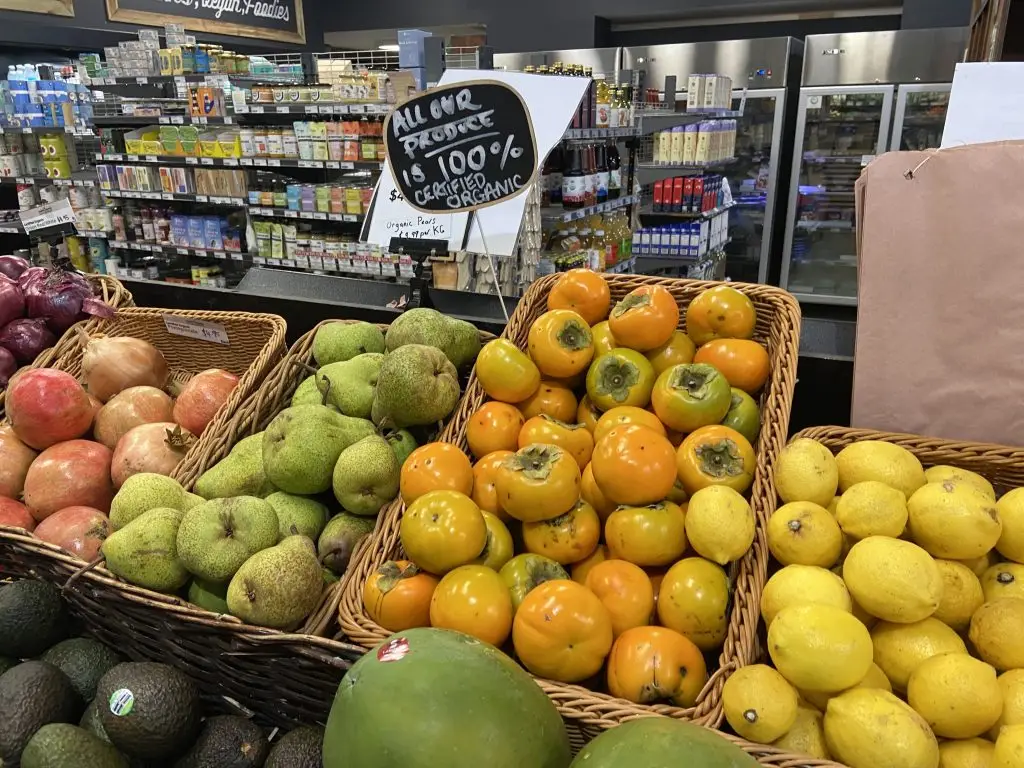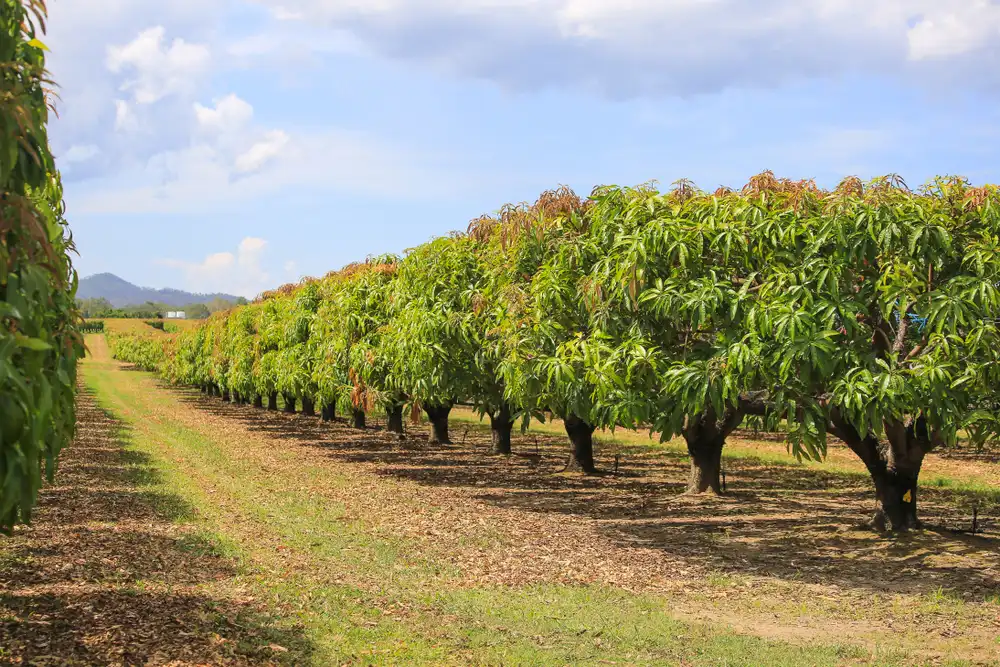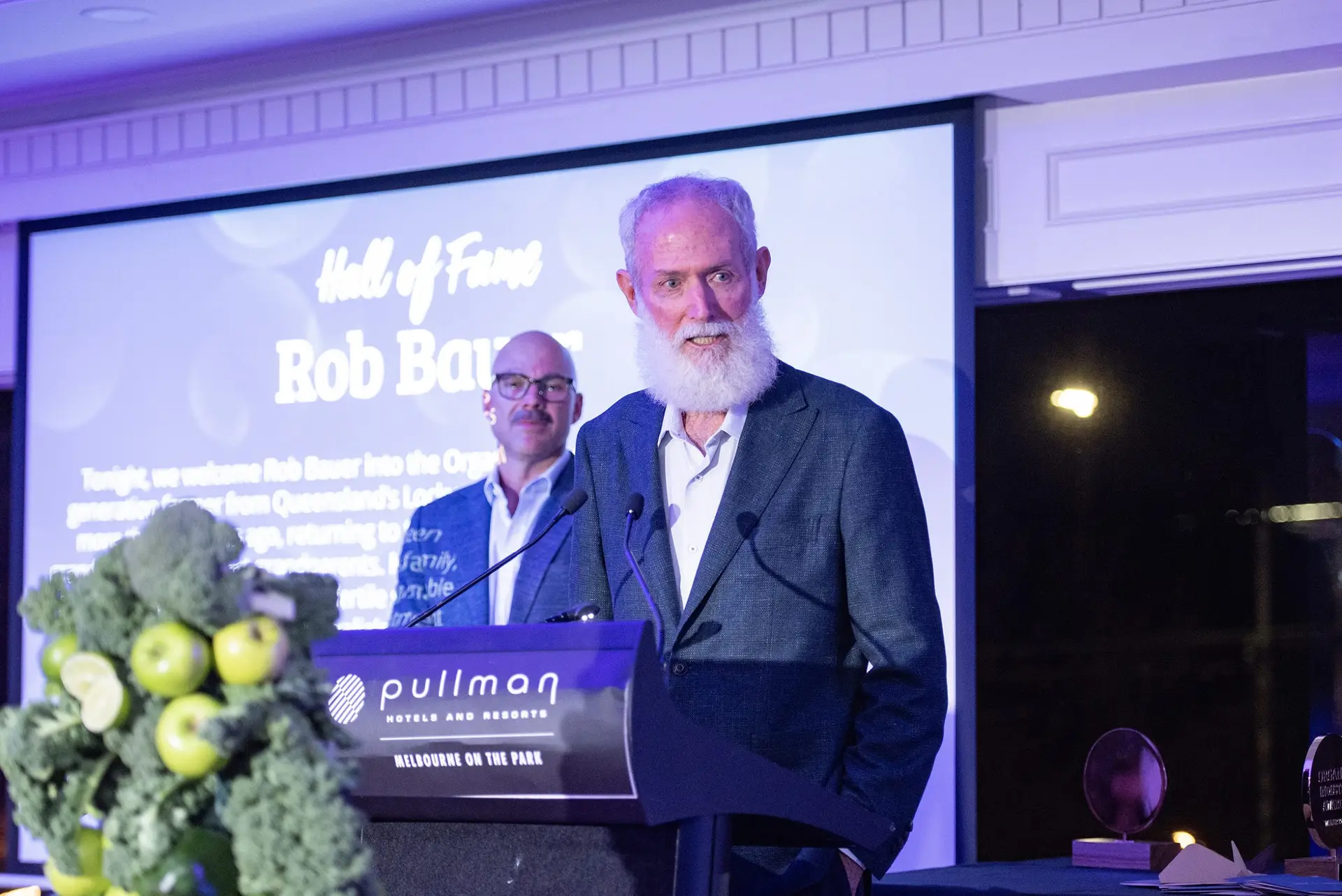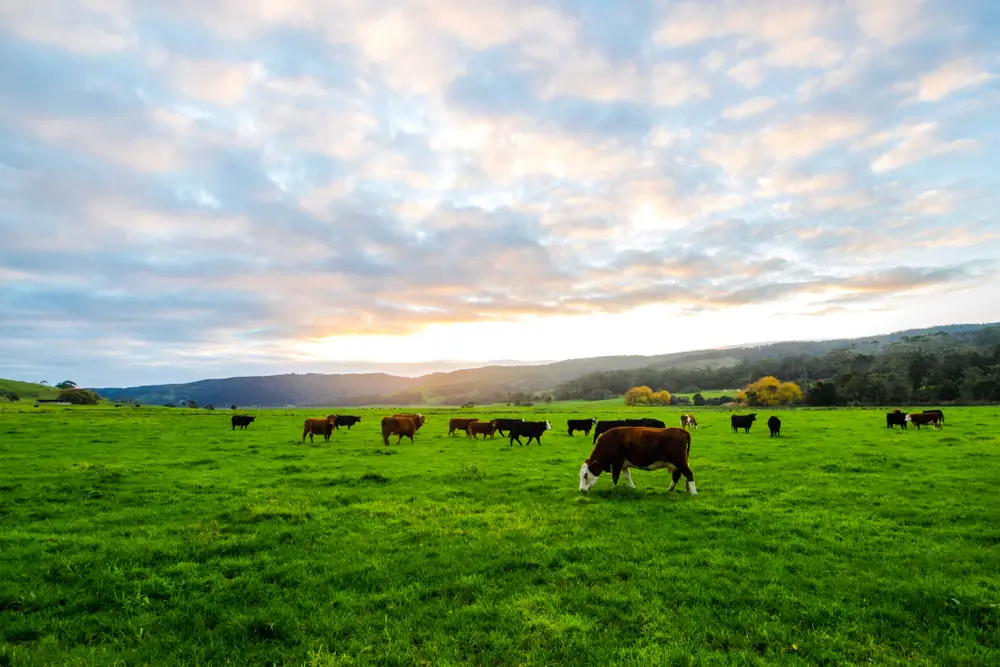Australian Organic Limited in partnership with Southern Cross University and all five Australian organic certification bodies have successfully secured a competitive grant to develop the nation’s first Research Development and Innovation (RD&I) Strategy for the Organic Horticulture Sector.
Worth $557,439 over one year and funded through Horticulture Innovation Australia (Hort Innovation), the RD&I strategy will provide a national roadmap to unlock growth opportunities, improve innovation capacity, and strengthen the competitiveness and sustainability of Australia’s organic horticulture producers by 2035.
AOL Chief Executive Officer, Jackie Brian, said it was an exciting time for industry, with the successful research grant demonstrating historic sector leadership and industry collaboration, priming the $2.6 billion sector to capture high-value growth opportunities across both domestic and export markets.
“This is the first time all major certification bodies – ACO Certification, Bio-Dynamic Research Institute, NASAA Certified Organic, Organic Food Chain and Southern Cross Certification – have joined forces with us and research partner Southern Cross University to deliver a unified national strategy,” Ms Brian said.
“By aligning national priorities and fostering sector collaboration, the project will allow Australia to capitalise on the strong and growing global demand for organic horticultural products.
“Overseas, we have seen investment in organic horticulture deliver stable price premiums, stronger supply chain resilience, enhanced customer loyalty and an acceleration of private sector investment into sustainable innovation.
“In the United States, organic fruits and vegetables account for more than 15% of total fresh produce sales, while in Germany the number is higher at 20%.
“Given Australia holds more than 70% of the world’s certified organic agricultural land, but only 1% of the global market share, investment in strategic RD&I will be critical in propelling the industry forward and facilitating similar benefits.”
Leading the project at Southern Cross University is Professor Terry Rose, an agronomist with an interest in organic agricultural systems. He is part of the University’s Harvest to Health Research Cluster.
“We are excited to work with Australian Organic, Hort Innovation and organic certification bodies to develop a research plan for our nation’s organic horticulture sector to help drive opportunities for growers in the decades ahead,” said Professor Rose.
“Southern Cross University has been committed to organic research across a range of agricultural sectors, including horticulture, through the Centre for Organics Research established here in 2018”.
Building market resilience and future sustainability
To deliver the RD&I Strategy, comprehensive engagement with key stakeholders over the 12-months of the project will be critical, starting with the first face-to-face consultation planned for the Hort Connections event in Brisbane in June.
In addition, Ms Brian said the research opportunities will be mapped against state and federal government sustainability, food security and environmental goals to facilitate investment opportunities, while aligning to organic production methods.
“We look forward to working closely with our organic producers to ensure the final RD&I Strategy reflects the organic sectors expertise in meeting the rising consumer expectations for traceability, climate-smart production, and food security without the use of toxic, persistent chemicals or synthetic nitrogenous fertilisers.”
Building market opportunities, a priority for the Organic Industry
The grant for the 10-year outlook RD&I Strategy for the Australian Organic Horticulture Sector complements AOL’s recent success in securing a 2026 Export Market Development Grant to deliver the Organic Asia Market Access Program across 10 key Southeast Asian markets, including Vietnam, Singapore, Malaysia and Thailand.
With some countries across Asia already large importers of Australian certified organic produce, Ms Brian said research has shown a willingness for consumers to pay a premium for organic meat products due to the perceived health benefits, superior food safety standards and enhanced taste perceptions.
“We know some of these consumers are willing to pay 40% more for organic products, which suggests similar opportunities exist for organic horticultural products, especially if aligned with health and wellness messaging, high-quality standards and clear certification credibility,” she said.
“The combination of developing the RD&I Strategy and working on targeted international market programs positions Australian organic horticulture positively, allowing industry to continue to grow across both domestic and export markets.”





